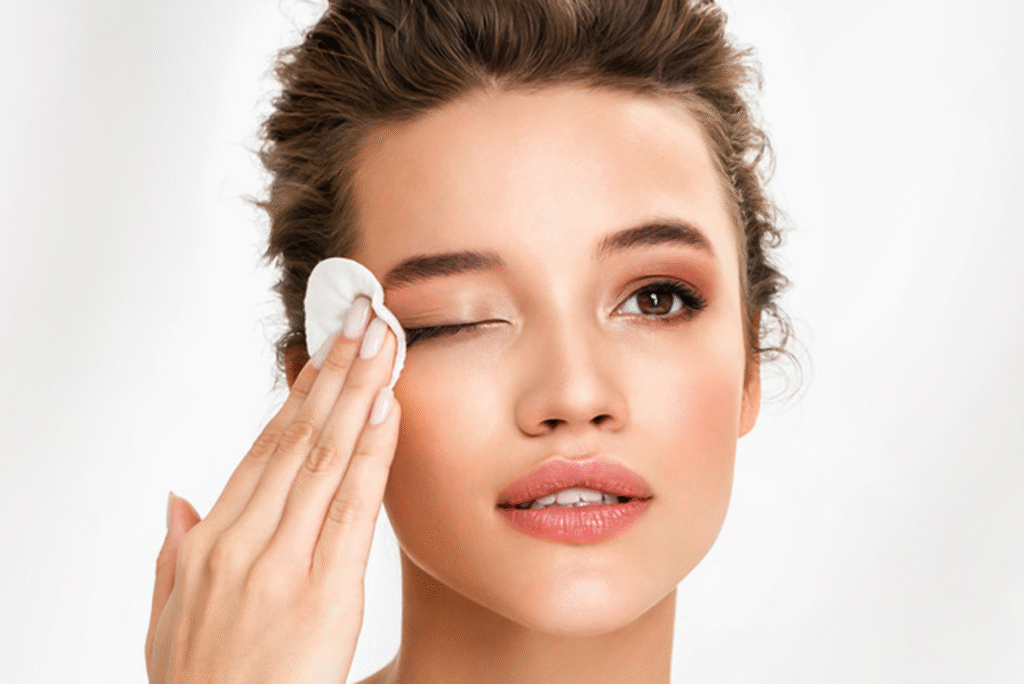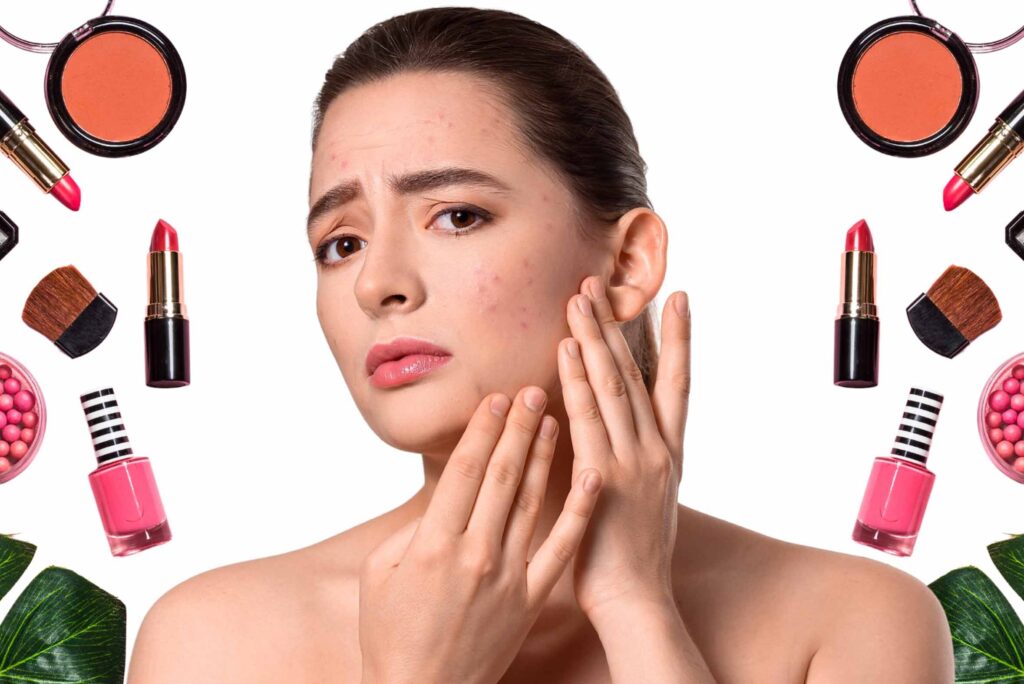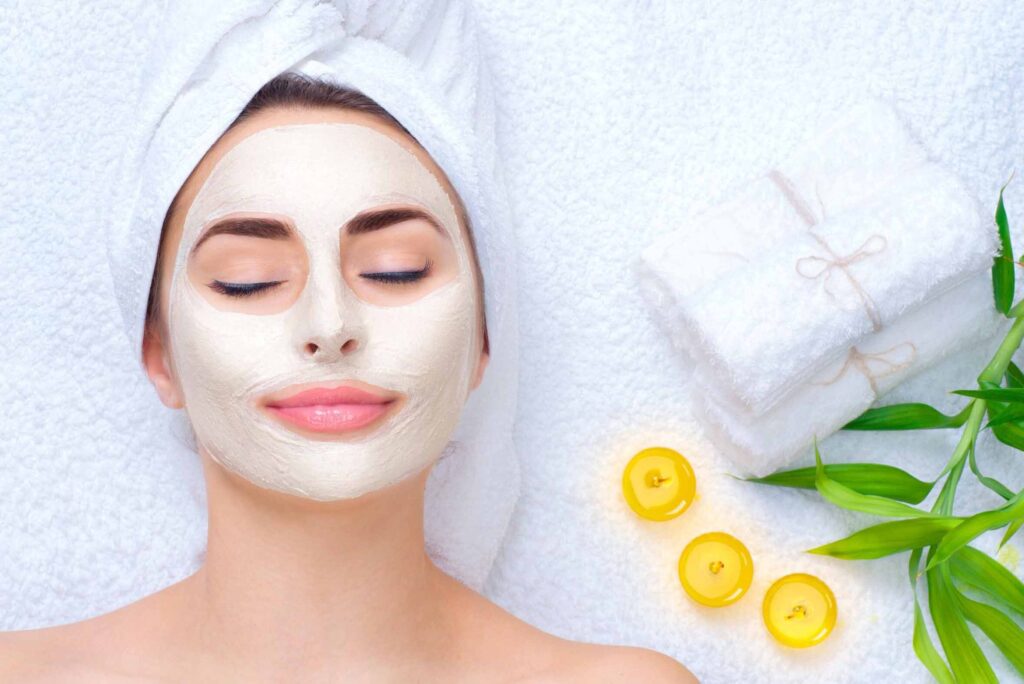
Why You Should Always Remove Your Makeup Before Bed
1. Makeup Blocks Your Skin’s Natural Healing Process Your skin does a lot while you sleep. It repairs itself, replaces

Makeup has become a part of everyday life for millions of people around the world. It helps us feel more confident, polished, and ready to face the day. From foundation and concealer to eye shadow and lipstick, makeup can enhance our natural beauty and hide skin imperfections. But have you ever wondered if makeup can harm your skin? Can makeup cause skin problems? The answer is yes, if used incorrectly or too often, makeup can lead to several skin issues.
This detailed guide will explore how makeup can affect your skin, what problems it may cause, how to avoid those problems, and how proper skincare products, like those from Jasyn Michael Skincare, can help keep your skin healthy and glowing.
Before we dive into how makeup may cause skin problems, it’s helpful to understand why people use it in the first place. Some of the common reasons include:
Makeup can be empowering. But just like any other product you put on your skin, it needs to be used wisely.
There are several ways makeup can harm your skin. Not everyone will experience these issues, but if you’re not careful, the following problems can arise:
One of the most common problems caused by makeup is clogged pores. When makeup, especially heavy foundation or primer, sits on your skin all day, it can mix with oil, sweat, and dirt. This combination can block your pores, leading to blackheads, whiteheads, and acne.
Acne is one of the main complaints people have when they use too much makeup or don’t remove it properly. This is known as “acne cosmetica”—a form of acne caused by cosmetic products. It usually appears on areas where makeup is applied most heavily, like the cheeks, forehead, and chin.
Many makeup products contain fragrances, preservatives, and dyes that can irritate sensitive skin. These ingredients may lead to redness, itching, rashes, or even swelling. If you’ve ever applied makeup and noticed your skin burning or itching afterward, you may be allergic or sensitive to one of its ingredients.
Some makeup, especially matte foundations or powders, can dry out your skin. When you use these products daily, they can strip your skin of its natural oils, leaving it dry and flaky. This is more common during winter months or if you already have dry or sensitive skin.
Wearing makeup to cover fine lines or wrinkles may seem like a good idea. But if you wear makeup all the time and don’t allow your skin to breathe, it can speed up aging. Over time, makeup particles can settle into lines, making them look deeper. Also, many people forget to use sunscreen under makeup, leading to sun damage, a major cause of early aging.
Eye makeup like mascara, eyeliner, or eyeshadow can easily cause infections if not applied or removed properly. Sharing eye makeup or using expired products can also increase the risk. Styes, redness, and itchiness are signs that your eyes may be reacting poorly to your makeup.

Not all makeup is created equal. Some ingredients are harsher than others. Here are some to watch out for:
If you have sensitive or acne-prone skin, reading product labels is very important. Choose makeup products labeled as “non-comedogenic,” “fragrance-free,” or “suitable for sensitive skin.”
Yes, but with conditions.
Wearing makeup every day won’t automatically damage your skin, but how you use and remove it matters. If you apply a full face of makeup daily but don’t cleanse your face properly at night, your skin will eventually show signs of stress.
Proper skincare can reduce the negative effects. You can safely wear makeup daily as long as you:
If you want to keep your skin looking great while enjoying makeup, follow these tips:
This cannot be stressed enough. Sleeping in makeup is one of the worst things you can do to your skin. It clogs pores, causes acne, and speeds up aging. Use a gentle cleanser or micellar water to remove all traces of makeup.
Dirty brushes are full of bacteria. Every time you use them, you may be spreading germs across your face. Wash your brushes weekly with mild soap and warm water to avoid breakouts and infections.
Sharing makeup, especially lip and eye products, can transfer bacteria and viruses. This can cause infections or allergic reactions. Always use your own products.
Cheap makeup may seem like a good deal, but it often contains harsh chemicals. Invest in high-quality, skin-friendly products that are tested and approved for safety.
Protect your skin from sun damage by using foundation or BB cream with SPF. Better yet, apply sunscreen under your makeup to ensure full protection.
Give your skin a break. At least once or twice a week, let your skin breathe. This can help reduce buildup and give your face time to heal and refresh naturally.
Using the right skincare products can make a huge difference in how your skin reacts to makeup. A good skincare routine should include:
It’s important to choose products that work for your skin type. If you have oily skin, look for oil-free moisturizers. If your skin is dry, use hydrating serums and creams.
This is where Jasyn Michael comes in. We offer a wide range of skincare products designed to keep your skin healthy, balanced, and radiant. Whether you need a gentle cleanser, a nourishing moisturizer, or a rejuvenating serum, our products are carefully formulated to work with your skin, especially if you wear makeup regularly. Investing in high-quality skincare like Jasyn Michael Skincare helps you reduce the risk of breakouts, dryness, and other makeup-related issues.
When buying makeup, it’s not just about color or texture. Pay attention to what’s inside. Here are some things to look for:
Always do a patch test with a new product. Apply a small amount on your inner wrist or jawline and wait 24 hours to see if any reaction occurs.
Every skin type reacts differently to makeup. Here’s a quick overview:
Knowing your skin type is the first step to choosing the right makeup and skincare routine.
If makeup has already caused skin problems like breakouts or irritation, here’s what you can do:
Makeup is not your enemy, but how you use it can make or break your skin. Wearing makeup daily is safe as long as you use the right products, clean your face properly, and follow a solid skincare routine. If you ignore these steps, your skin may start showing signs of trouble like acne, dryness, and irritation.
Don’t forget – your skin is the canvas for your makeup. Take care of it, and your makeup will look better, last longer, and cause fewer problems.
That’s where Jasyn Michael Skincare comes in. With our high-quality skincare products, you can enjoy makeup without worrying about damaging your skin. Our products support healthy skin and help reduce the effects of makeup-related stress.

1. Makeup Blocks Your Skin’s Natural Healing Process Your skin does a lot while you sleep. It repairs itself, replaces

Why Use a Facial Mask? A facial mask gives your skin a deeper treatment. It can remove dirt, oil, and

Who Started the 60 Second Rule? The rule became popular thanks to Nayamka Roberts-Smith, a licensed esthetician and beauty influencer

Why Blood Flow Is Important for Skin Your skin is the largest organ in your body. It needs oxygen, water,